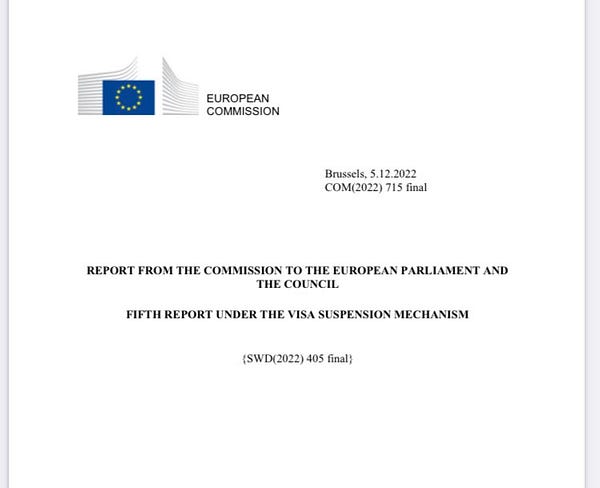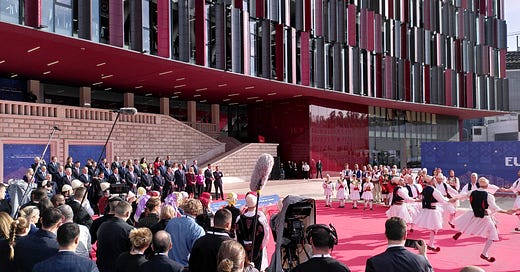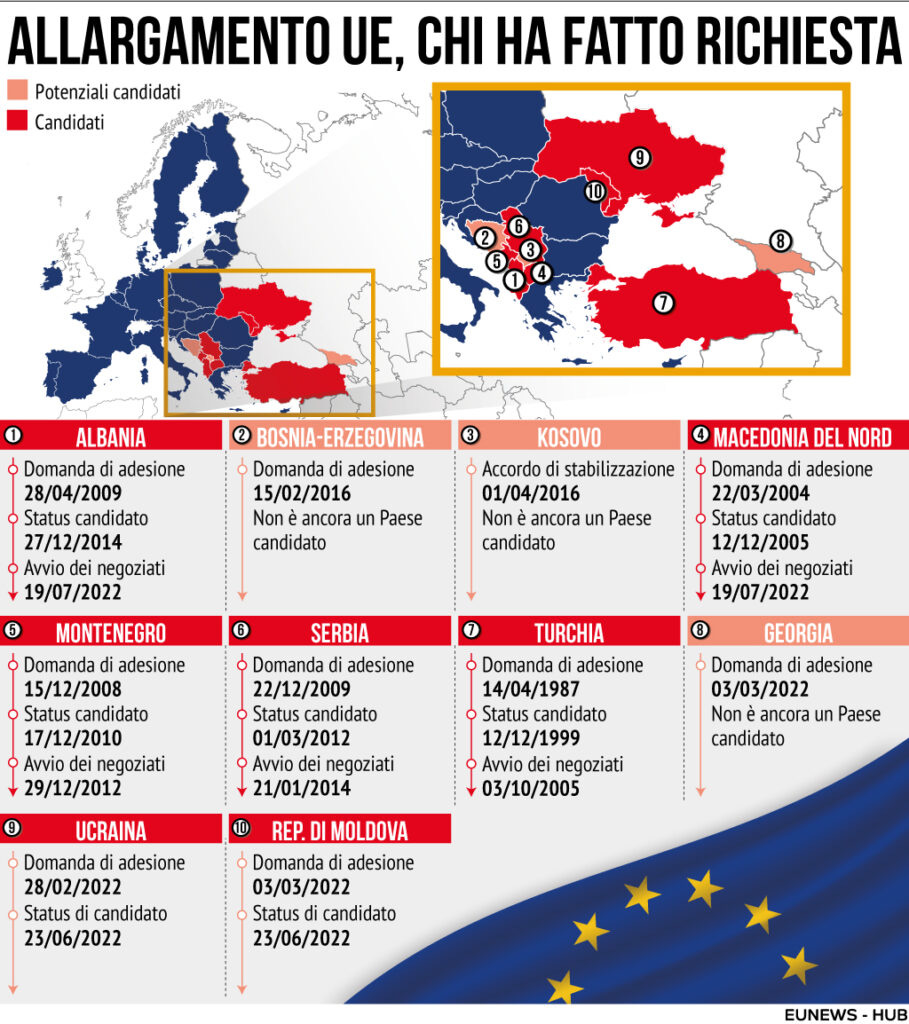Breaking news from Tirana
Back from Albania, a behind-the-scenes analysis of the EU-Western Balkans Summit of December 6. On the agenda: energy mix, migration, data roaming, EU enlargement in the region and custom microphones
Hi,
welcome back to BarBalkans, the newsletter (and website) with blurred boundaries.
This is a special edition, because of the exceptionality of the publication (since September, BarBalkans has become a bi-weekly newsletter), but especially because I have something important to tell you.
Thanks to the support of Eunews editorial staff and BarBalkans’ subscribers, on December 6 I could attend the EU-Western Balkans Summit in Tirana (Albania).
As you know, this is the most important political event for the relationship between the European Union and the six Balkan countries.
It was exciting, as every time. Or even more.
Because this was the first ever EU-Western Balkans Summit hosted in the region that is still waiting to join the European Union.
As the Albanian Prime Minister, Edi Rama, pointed out, «it is a clear sign of awareness that today the EU needs the Balkans as much as we need the them».
For live coverage, you can watch the Instagram Story Highlight, with incredible moments such as the traditional and contemporary dances in front of the EU and Western Balkans leaders.
Today, I want to tell you what happened on Tuesday, from a very personal perspective.
That was like this, more or less:
The EU enlargement
The EU-Western Balkans Summit can be described as the summit of maintenance. Indeed, the main objective was to defend the progress achieved in the months following the failed Summit in Brussels, on June 23.
For example, the start of negotiations for accession to the European Union for Albania and North Macedonia. Or even the search for more unity in the response to the Russian war in Ukraine, and the new steps for the EU enlargement.
Bosnia and Herzegovina awaits the EU leaders’ decision (on December 15) on the European Commission’s recommendation to grant candidate status to Sarajevo.
Kosovo is ready to apply for EU membership «in the next two weeks», President Vjosa Osmani confirmed at the summit in Tirana.
Serbia is still far from aligning with international sanctions against Russia. The authorities in Belgrade are implicitly mentioned in the Tirana Declaration: «We urge them to make swift and sustained progress towards full alignment with the EU Common Foreign and Security Policy (CFSP), including on restrictive measures».
Serbia and Kosovo have been worrying the EU institutions for weeks, due to the tensions caused by the decision in Pristina to impose the replacement of Serbian license plates (widespread among the Serbian minority in the country) with Kosovar plates.
Despite the agreement of November 24, that solved a serious crisis, another issue has emerged in recent days.
At the beginning of November, ethnic-Serbian mayors, councillors, parliamentarians, judges, prosecutors, judicial personnel and police officers resigned as a sign of protest against the government in Pristina. And they have still not taken office back.
One of them was Goran Rakić, leader of Lista Srpska (the Serbian-Kosovar party close to the President of Serbia, Aleksandar Vučić) and former Minister for Communities and Returns.
To fill the void, the Prime Minister of Kosovo, Albin Kurti, appointed Nenad Rašić, leader of the Progressive Democratic Party (hostile to Belgrade), unleashing Vučić’ anger.
The Serbian President first threatened to boycott the EU-Western Balkans Summit, but he backtracked on the eve of the event.
It is also for this reason that a specific point in the Declaration clarified that «concrete progress by the two Parties towards a comprehensive legally binding agreement» on normalization of relations between the two countries is needed.
EU officials in Tirana reported that an updated version of the Franco-German proposal has been sent to Pristina and Belgrade, which should lead to an agreement «in less than a year».

The migration issue
This topic has been addressed with particular urgency by EU and Western Balkan leaders.
«We know that this is a never-ending challenge, and now we have to face an increase in arrivals along the Balkan route», the President of the European Council, Charles Michel, stated.
According to Frontex (the European Border and Coast Guard Agency) data, around 128 thousand irregular border crossings was registered from January to October 2022 (they were 764 thousand in 2015 and 130 thousand in 2016).
It is no coincidence that, on the eve of the summit in Tirana, the European Commission proposed an Action plan for the Balkan route, based on 20 measures and 5 pillars (strengthening of border management, asylum and reception procedures, fight against human trafficking, cooperation on readmission and returns, alignment of visa policy).
And nor is it a coincidence that the Tirana Declaration emphasize the «common challenge and responsibilities», stressing the same points.
The most complex issue is the alignment of the visa-free regimes with EU visa policy.
This means that the Western Balkan countries allow some third-country citizens to travel with no need of visa, while the Schengen countries (where internal borders have been dismantled) do not.
In this way, people can fly to the Balkan region with no visa and, from there, make their way to the EU external borders (where visas are required, and often very hard if not impossible to get it, if you come from certain countries).
However, for the EU institutions the alignment is essential to maintain a visa-free policy towards the Balkan countries.
Serbia is the partner that is causing major problems (only recently, visa has been reintroduced for citizens from Burundi and Tunisia).
The EU is not proving to be coherent either.
Due to the lack of unity among the EU Member States, Kosovo has been waiting since 2018 for visa liberalization. According to the position adopted last week, the exemption to the last excluded European country (except for Russia and Belarus) will be granted no later than January 1st, 2024.
Paradoxically, according to the European Commission’s report, North Macedonia and Montenegro are not be perfectly aligned with the EU visa policy just because they decided to grant exemption to the citizens of Kosovo.




At the end of the EU-Western Balkans Summit, also the Italian Prime Minister, Giorgia Meloni, made some statements on migration. And she defined - if it was not yet clear - the position of the new right-wing government in Italy.
«I am not worried that the focus on the Balkan route will make the EU institutions forget the Central Mediterranean route, because Italy is affected on both fronts», the leader of Fratelli d’Italia party told the press (you may also notice the Eunews custom microphone).
The Balkan route is the largest migratory movement at the EU external borders. In terms of irregular border crossings, it is larger than the Central Mediterranean route.
Using violent and criminalizing words towards migrant people, Meloni urged the EU institutions to «move from redistribution, which does not solve the problem, to stopping illegal immigration».
A little note: words matter. Migration can take place in an irregular way, but it is never “illegal”.
The energy support
During her trip to the Western Balkan capitals at the end of October, the President of the European Commission, Ursula von der Leyen, anticipated an economic package to support the region against the ongoing energy crisis.
From 2023, the EU will allocate 1 billion euros in the Western Balkans. «It is important for us to provide our partners with solutions similar to those agreed in the EU», von der Leyen emphasized.
In Tirana, for the very first time, the Energy Support Package has been discussed among Heads of State and Government, with all the relevant details.
The package will be divided into two parts, each of 500 million euros. It will be aimed to accelerate not only the energy independence of the region from Russian fossil fuels, but also the energy planning for the long-term future.
The first pillar is a direct budget support to address the impact of energy prices as early as next January: 30 million for Montenegro, 70 for Bosnia and Herzegovina, 75 for Kosovo, 80 for North Macedonia, as much for Albania, and 165 for Serbia.
The second pillar consists of funding for energy diversification, renewables, gas and electricity infrastructure and interconnectors.
The Tirana Declaration invites the six countries to join the EU Energy Platform, to purchase gas, LNG and hydrogen jointly on global markets, while RePowerEu involves the entire Balkan region.
And finally, regulatory reforms in the energy sector are considered a «condition» for the opening of the EU electricity market to the Western Balkans through the Energy Community.
Data roaming
Another crucial element for the future of EU and Balkan citizens is the agreement on connectivity, just before the opening of the summit in Tirana.
As early as 2023, tourists and businesses will benefit from the Roaming Declaration.
This is a voluntary agreement between the EU, the Western Balkan countries and telecom operators, to ensure that all citizens can make calls, send messages and browse online with no additional fee abroad.
As a matter of fact, this is what has been happening in the European Union since 2017 (and at least until 2032). Every time a EU citizen travels in another Member State, they can use data roaming as if they were at home.
Read also: S2E10. The Western Balkans Union
The starting point is an all-Balkan success story: the Roam like at Home Agreement in July 2021, with a roadmap to eliminate additional costs also towards the European Union planned at the EU-Western Balkans Summit in Kranj (Slovenia) on October 6.
Before the establishment of free roaming - by 2027, as EU officials anticipated - the first reduction of costs will be scheduled on October 1st, 2023.
Further information will be released by May 1st, 2023, when the parties that have decided to join the Declaration (including new operators) will sign the agreement on the steps for lowering roaming costs.
In short, it will be increasingly easier to contact anyone and anywhere all over Europe.
The unity between the European Union and the Western Balkans - sought at the “maintenance summit” in Tirana - will depend also on this connection between citizens.
Pit stop. Sittin’ at the BarBalkans
We have reached the end of this piece of road.
Believe it or not, it has become a tradition that whoever organizes an EU-Western Balkans Summit has to bring a gift to our bar, the BarBalkans.
It happened in Kranj in 2021 with The Slovenian Presidency Recipe Book. But Albania has definitely raised the bar.
As part of the welcome package to the Summit in Tirana, we received the book Homeland and a bottle of red wine from the Albanian hinterland.
Today, we can taste some excellent Kodra e Bukur, from Vila Hadaj Winery.
This is a wine made from Merlot, Cabernet and Shesh i Black grapes, grown in 30-year-old vineyards on the hills of Malinati.
With its ruby red color, a strong flavor and hints of berries, Kodra e Bukur is perfect to accompany all Mediterranean dishes.
Let’s continue the BarBalkans journey. We will meet again in a week, for the 9th stop.
A big hug and have a good journey!
Just back from Albania, I am already looking forward to leave for new places and tell you new events from there.
With a donation, you can support the project, contribute to the purchase of professional equipment and help me organize new trips.
As a gift, every second Wednesday of the month you will receive a monthly article-podcast on the Yugoslav Wars, to find out what was happening in the Balkans - right in that month - 30 years ago.
The time machine will be back on next Wednesday, with December ‘92. Orthodox brotherhood, Yankee enemies. You can listen to the preview of BarBalkans - Podcast on Spreaker and Spotify.
As always, I thank you for getting this far with me. Here you can find all the previous newsletters.
Pay attention! The first time you will receive the newsletter, it may go to spam, or to “Promotions Tab”, if you use Gmail. Just move it to “Inbox” and, on the top of the e-mail, flag the specific option to receive the next ones there.









